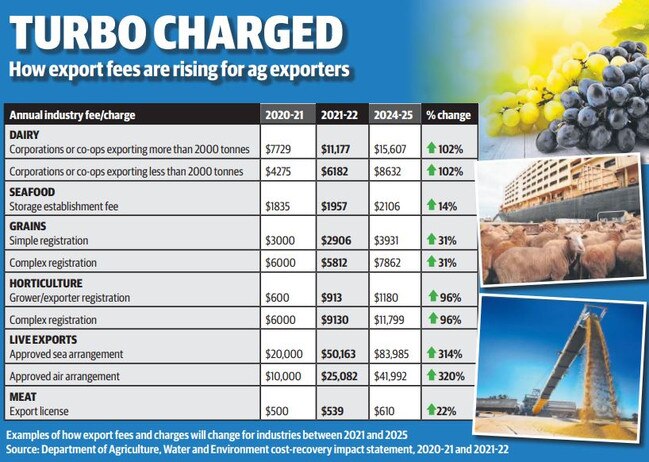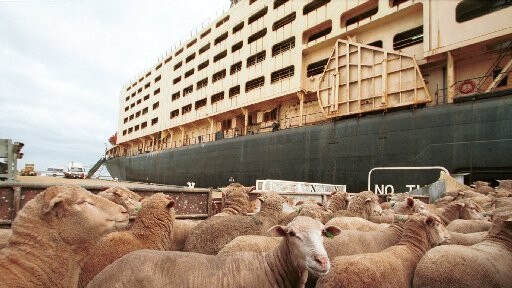Export fees: How much costs have increased
Findings from a review into the cost of agricultural export regulations are yet to be revealed a year on, while exporters are calling for delays to suggested fee increases.
An independent review into how much the Federal Government is spending on agricultural export regulation remains hidden from the public, more than a year after it was completed.
It comes as exporters are about to be slugged with massive administrative price hikes from July 1, under a Government plan to make the sector’s regulation fully-cost-recovered by 2024.
Horticulture exporters, who are facing doubled costs from July 1, and an almost 100 per cent increase over four years, are leading the call for a delay in implementing the new charges – but so far, Agriculture Minister David Littleproud has given no indication he will do so.
The Department of Agriculture, Water and Environment commissioned consultancy Ernst & Young in 2019 to undertake a review of how efficient and effective the department’s food and plant export certification processes were, including consideration of the Government’s plan for full cost-recovery.

The review was handed to Government in March last year – but 15 months on, it remains under wraps, despite being used to inform public consultation on each industry’s cost-recovery statements.
A Department spokeswoman said the review would be released “shortly”, and that the department had already been adopting its findings.
“The report made findings about enhancing the department’s effectiveness in its strategic objectives and day-to-day delivery of our responsibilities to maximise stakeholder satisfaction and engagement,” she said.
“It did not identify that the department was over-resourced to deliver on its objectives, however it did identify opportunities to enhance efficiency towards leading practice.”
Figures from the department shows export arrangement costs had blown out by $43.7 million as of 2019-20. It claims a $328.4 million package to reduce red tape for ag exporters – announced last year – will ultimately see fees and charges reduced by $21.4 million by 2024.
But horticulture and live animal exporters – which are copping the highest price hikes – say the department needs to focus on how to keep costs down, and questioned why they are being charged for incidentals such as office space and IT.
Mr Littleproud has just two weeks to consider industry feedback and sign off on the changes before July 1 – and has given no sign he’s inclined to delay the start date.
“It is appropriate and fair that industry repays the Australian taxpayer for the services they use, especially when some are paying the full costs and others paying less than half,” Mr Littleproud said.
“I have also made it clear to the department they need to streamline their costs and reduce the regulatory burden.”


